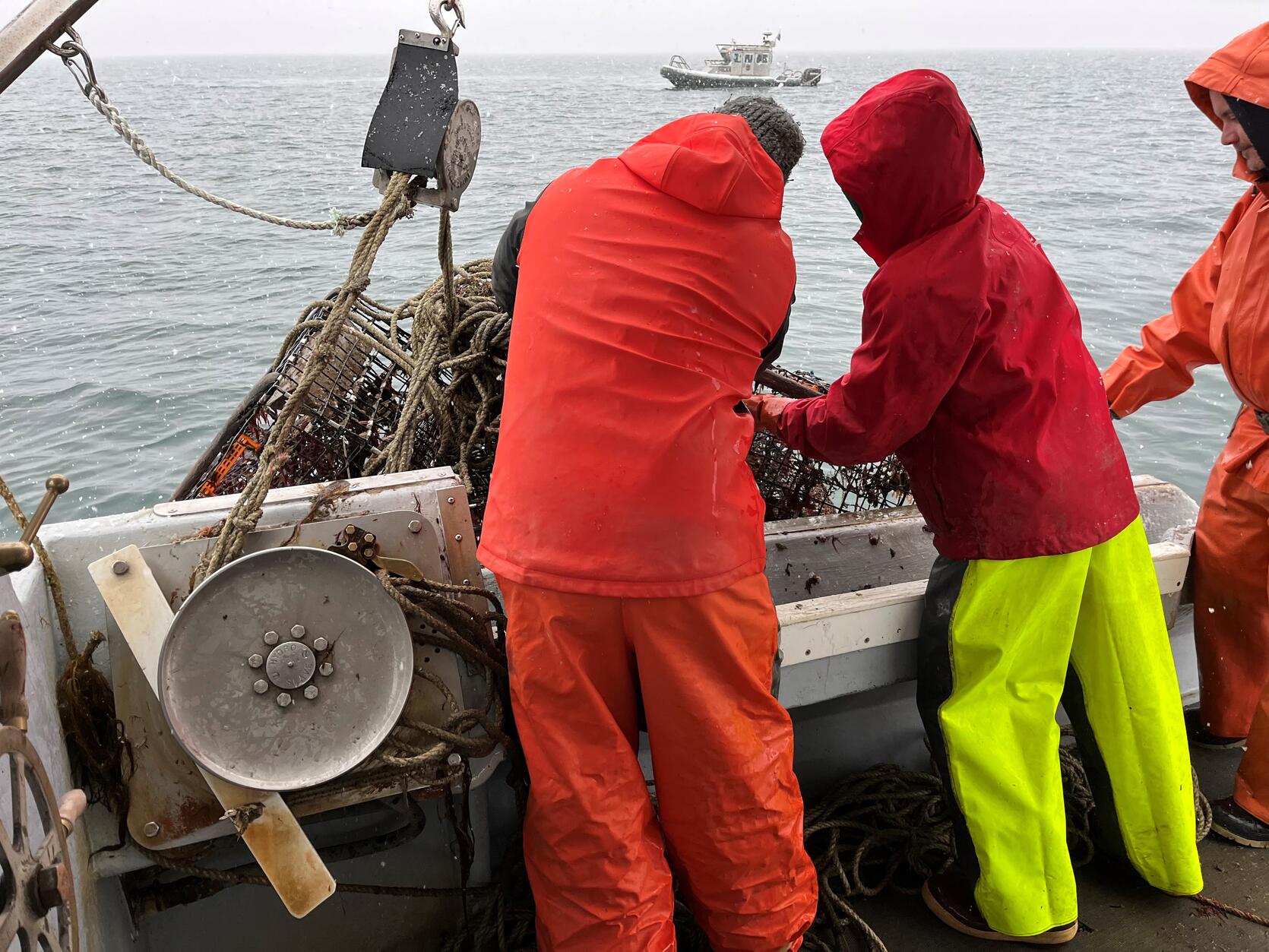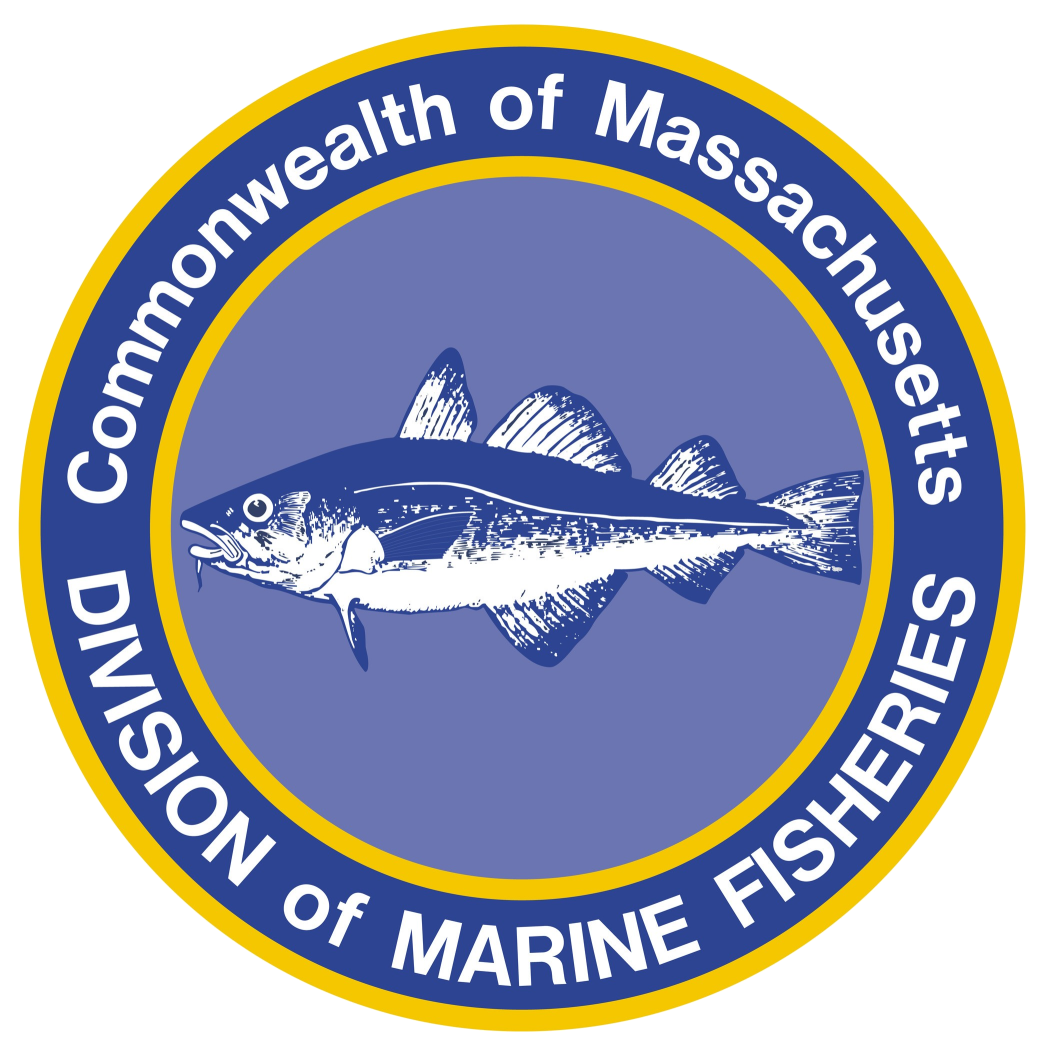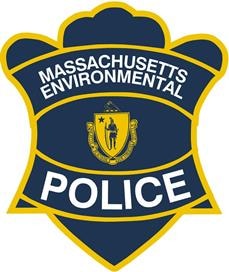- Division of Marine Fisheries
- Massachusetts Environmental Police

DMF has initiated a new joint program with the Massachusetts Environmental Police (MEP) to identify and remove all lost and abandoned fixed fishing gear within the portion of Massachusetts state waters that are seasonally closed to protect right whales. Beginning this February, we utilized a combination of aerial surveillance provided by the Center for Coastal Studies and MEP vessel patrols to identify and mark the location of lost/abandoned fixed fishing gear in the closure. DMF then utilized six contracted commercial lobster vessels working with our staff and MEP officers to haul and remove all gear. Between February 9 and March 17, we conducted a total of 49 sea-days in which we hauled more than 2,000 traps and roughly 500 buoy lines from the closure.
This effort not only ensures that our seasonal state waters closure is as effective as intended at reducing entanglement risk, but it also provided us with an opportunity to monitor compliance with the closure and requirements for weak rope/contrivances, maximum rope diameter, and gear marking. The vast majority (~80%) of buoy lines that we removed were from gear that was deemed “lost”. In these cases, the buoys, ropes, and traps were heavily fouled and typically consisted of a few traps or a lone trawl that belonged to a single individual.
Within that population of lost gear, compliance with 1,700-lb ‘weak rope,’ maximum rope diameter, and gear marking rules was >90%. This represents a good random sample of what we would expect compliance with these regulations to be and is consistent with observations of MEP during routine inspections at other times of year. Non-compliant permit holders in these cases were issued a non-criminal citation given the modest scale of the violation.
The remaining 20% of gear hauled in this program consisted of gear that appeared to be intentionally left behind in the closure. This typically consisted of multiple traps or trawls belonging to a single individual in a fairly discrete area. The gear in question did not have any fouling and was consistent with gear that had been recently hauled (in one instance the gear was freshly baited). Compliance with 1,700-lb weak rope, maximum rope diameter, and gear marking rules among this subset of gear was very poor. In total, there was gear from six different permit holders that fall into this category. Given the serious nature of the violations and the clear intent to ignore the closure, DMF will pursue enforcement of these cases administratively through our adjudicatory process, whereby we will seek permit suspension or revocation depending on the seriousness of the violation.
There was a definitive regional trend in compliance with the closure. In Cape Cod Bay and down the backside of Cape Cod, where the seasonal closure has been in effect since 2015, compliance rates were exceptionally high (~99%). Compliance rates in Massachusetts Bay north to the Cape Ann region however were lower, and this is where we observed all the major violations. The seasonal closure in this portion of state waters started in 2021. We expect that compliance in this area will improve in subsequent years as it has in Cape Cod Bay where fishers have dealt with the closure for a longer time.
We offer this program as a new compliance monitoring and mitigation program that we will conduct annually as part of our Right Whale Habitat Conservation Plan. We expect that aggressive enforcement through this program will enhance overall compliance with our protected species regulations and ensure that there is no entanglement risk to right whales when they are seasonally abundant in Massachusetts state waters.
By Robert Glenn, Chief Marine Fisheries Biologist, and Julia
Kaplan, Communications Specialist

